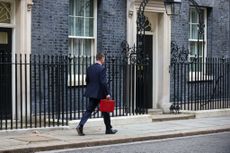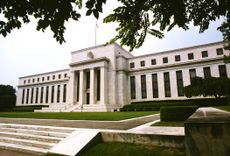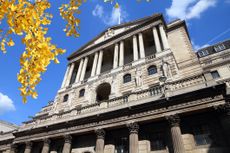Why the Budget means house prices are likely to continue higher this year
For a while, it looked like house prices might cool off a little this year. But after the Budget, that seems unlikely. John Stepek explains why.


One of the big(gish) surprises of 2020 was how rapidly house prices rebounded from the impact of the Covid-19 pandemic.
It helped that a stamp duty holiday gave anyone who was thinking of reconsidering their move a good incentive to keep going. It helped that the furlough scheme alleviated the worst of the employment risks, helping to keep the mortgage market open. And it helped that being at home made everyone start thinking about moving somewhere nicer or bigger or more rural. It also probably helped that people who were still earning money had few of their usual outlets to spend it on.
It was looking briefly as though 2021 might see the pace of rebound cool off a little. But after the latest Budget, that seems like a forlorn hope. For a start, the stamp duty holiday has been extended until the end of June. That’s partly to make sure that all the people who have already bought will get in under the wire in time to make the saving.
Subscribe to MoneyWeek
Subscribe to MoneyWeek today and get your first six magazine issues absolutely FREE

Sign up to Money Morning
Don't miss the latest investment and personal finances news, market analysis, plus money-saving tips with our free twice-daily newsletter
Don't miss the latest investment and personal finances news, market analysis, plus money-saving tips with our free twice-daily newsletter
Also, at the lower price bracket, the extension will continue after 30 June until the end of September, with no one paying stamp duty up to £250,000 (rather than £125,000) – although bear in mind that first-time buyers don’t pay stamp duty up to £300,000 in any case (note that this only applies in England and Northern Ireland – stamp duty is devolved in Scotland and Wales and it’s not yet clear whether those governments will follow).
So any post-stamp duty holiday is going to be pushed back. We can also expect more pressure on prices to go up (if, as a buyer, you don’t have to pay £10,000 in stamp duty, then at least some of that money gets added to the pool you use to buy your house, so you’re not necessarily saving the whole lot, or even most of it – the seller is most definitely getting a chunk).
This of course leaves us with the problem (not one that’s unique to Britain right now) of affordability. That is, house prices are still very expensive by historic standards. And that’s causing a lot of discontent. The fundamental difficulty here is that house prices are driven by the availability and affordability of mortgages. That’s it – you can play around with physical supply and demand as much as you like, but the most important variable for prices is the amount of money available to buy the house (look at prices in the rest of the world if you struggle to appreciate this).
That in turn is mostly dictated by interest rates. Rates are going to remain low for the foreseeable future simply because governments can’t afford for them to go up – there’s too much debt out there. And that’s not to mention how existing homeowners would react were the price of their biggest asset (in most cases) to plunge suddenly because of a rise in rates.
So the route pursued by governments has generally been to make it easier for first-time buyers to get into the market, rather than one which does anything about making property more affordable. And of course, that’s what the government has chosen to do here, with the other big property move in the Budget – the decision to encourage mortgage lenders to offer loans to people with small (5%) deposits, by offering taxpayer guarantees.
These 95% mortgages are available to any buyer of a house worth up to £600,000. So this isn’t just for first-time buyers, and unlike Help to Buy it’s not limited to new builds. The loans will be available from April and the scheme is set to run up until the end of December 2022.
What it boils down to is that banks will make the loans safe in the knowledge that the taxpayer will guarantee the loan if the homeowner defaults on it. The buyer has no such protection, but just has to hope that house prices stay high enough for long enough to avoid being tipped into negative equity at the wrong moment.
Given that the government is clearly keen to keep house prices propped up, perhaps this is a good bet. And perhaps if you’re buying a house to live in, all you should be worrying about is whether or not it suits your personal situation.
As for affordability overall – the only semi-painless (and “semi” is doing a lot of work in that phrase) way to make house prices genuinely more affordable is for inflation (and wage inflation specifically) to rise faster than house prices. That way you get a decline in house prices in “real” terms (ie, after inflation).
You don’t get the sort of damage to household and bank balance sheets that a drop in nominal prices would cause. But at the same time houses become more affordable, in turn lessening one of the most obvious sources of wealth inequality.
Inflation almost certainly forms part of Rishi Sunak’s big plan for getting Britain’s public finances back to some semblance of good health. So perhaps we’ll get lucky. But for now, it looks as though house prices are only going to continue to go up this year.
John is the executive editor of MoneyWeek and writes our daily investment email, Money Morning. John graduated from Strathclyde University with a degree in psychology in 1996 and has always been fascinated by the gap between the way the market works in theory and the way it works in practice, and by how our deep-rooted instincts work against our best interests as investors.
He started out in journalism by writing articles about the specific business challenges facing family firms. In 2003, he took a job on the finance desk of Teletext, where he spent two years covering the markets and breaking financial news. John joined MoneyWeek in 2005.
His work has been published in Families in Business, Shares magazine, Spear's Magazine, The Sunday Times, and The Spectator among others. He has also appeared as an expert commentator on BBC Radio 4's Today programme, BBC Radio Scotland, Newsnight, Daily Politics and Bloomberg. His first book, on contrarian investing, The Sceptical Investor, was released in March 2019. You can follow John on Twitter at @john_stepek.
-
 Private school fees soar and VAT threat looms – what does it mean for you?
Private school fees soar and VAT threat looms – what does it mean for you?Rising private school fees could see more than one in five parents pull their children out of their current school. Before you remortgage, move house or look to grandparents for help, here’s what you need to know.
By Katie Williams Published
-
 Best and worst UK banks for online banking revealed
Best and worst UK banks for online banking revealedWhen it comes to keeping your money safe, not all banks are equal. We reveal the best and worst banks for online banking when it comes to protecting your money from scams
By Oojal Dhanjal Published
-
 UK wages grow at a record pace
UK wages grow at a record paceThe latest UK wages data will add pressure on the BoE to push interest rates even higher.
By Nicole García Mérida Published
-
 Trapped in a time of zombie government
Trapped in a time of zombie governmentIt’s not just companies that are eking out an existence, says Max King. The state is in the twilight zone too.
By Max King Published
-
 America is in deep denial over debt
America is in deep denial over debtThe downgrade in America’s credit rating was much criticised by the US government, says Alex Rankine. But was it a long time coming?
By Alex Rankine Published
-
 UK economy avoids stagnation with surprise growth
UK economy avoids stagnation with surprise growthGross domestic product increased by 0.2% in the second quarter and by 0.5% in June
By Pedro Gonçalves Published
-
 Bank of England raises interest rates to 5.25%
Bank of England raises interest rates to 5.25%The Bank has hiked rates from 5% to 5.25%, marking the 14th increase in a row. We explain what it means for savers and homeowners - and whether more rate rises are on the horizon
By Ruth Emery Published
-
 UK wage growth hits a record high
UK wage growth hits a record highStubborn inflation fuels wage growth, hitting a 20-year record high. But unemployment jumps
By Vaishali Varu Published
-
 UK inflation remains at 8.7% ‒ what it means for your money
UK inflation remains at 8.7% ‒ what it means for your moneyInflation was unmoved at 8.7% in the 12 months to May. What does this ‘sticky’ rate of inflation mean for your money?
By John Fitzsimons Published
-
 VICE bankruptcy: how did it happen?
VICE bankruptcy: how did it happen?Was the VICE bankruptcy inevitable? We look into how the once multibillion-dollar came crashing down.
By Jane Lewis Published